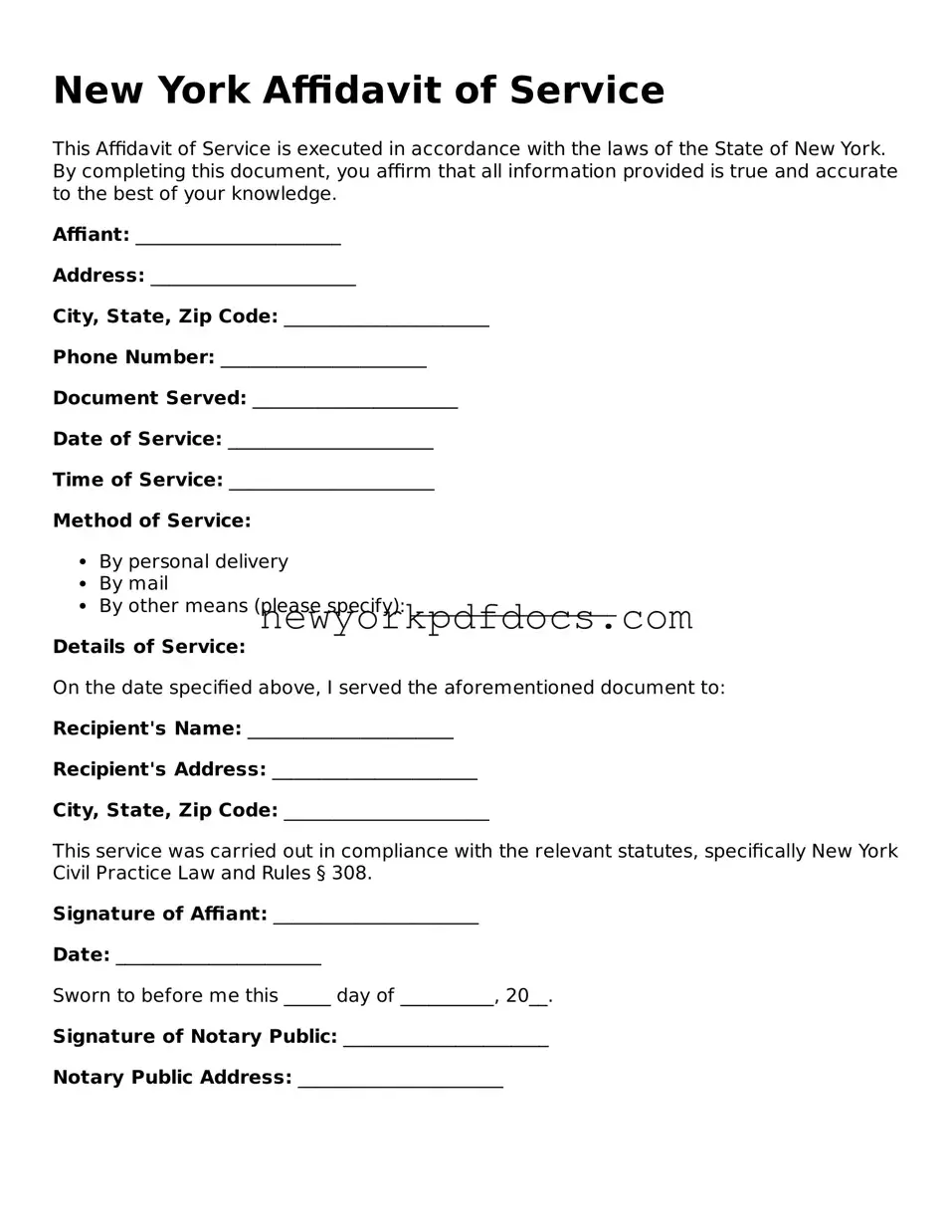Valid Affidavit of Service Document for New York
The New York Affidavit of Service is a legal document used to confirm that a party has been properly served with court papers. This form provides proof that the required documents were delivered to the intended recipient, ensuring that the legal process can move forward. Understanding the details and requirements of this form is essential for anyone involved in a legal proceeding in New York.
Open My Document Now

Valid Affidavit of Service Document for New York
Open My Document Now
Your form isn’t finalized yet
Edit, save, and download Affidavit of Service online with ease.
Open My Document Now
or
⇓ Affidavit of Service PDF
